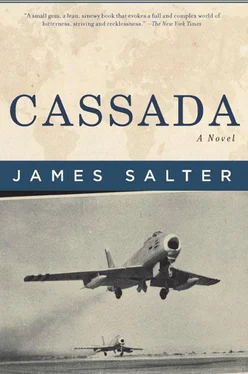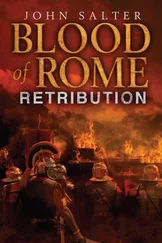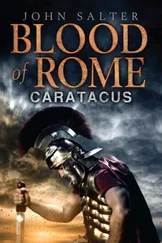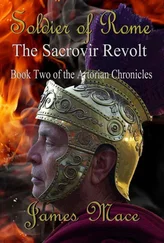Isbell passed a hand in front of his face two or three times and touched the side of his helmet. He saw Cassada nod. He tapped his oxygen mask. Another nod. Transmitter and receiver both out. He was still turning things over in his mind. They were only ten or fifteen minutes out. He could feel Cassada waiting, watching, wondering perhaps, though able to talk to the ground. I’m going to touch down right beside you. It would be the reverse. Finally Isbell pointed a finger at him, then pointed straight ahead. Cassada’s ship moved forward.
Isbell was now flying wing. In the silence he hung there. All that remained in the world was the other airplane. He stared at it. Every detail was terrifically clear. He read the black numbers on the tail. He watched the other plane move, rising slightly, sinking, as if borne by the calmest sea. It seemed incredibly heavy against the sky. He watched Cassada’s head move, nod—he was talking to someone—then look this way and that. What was he saying? What were they telling him? Isbell began switching channels again, fumbling blindly for the set which was behind his left elbow. He called on each frequency, aching to hear something. He saw then that they had started to descend. He glanced at the clouds beneath. They were dark, profound.
They were at twenty thousand, the station still ahead. A thousand years had passed since Marseilles. Isbell glanced quickly at the needle. It was steady. They were close. It was holding dead on as if anchored. When he looked again it had begun to waver, darting from side to side. Speed brakes, he thought, and almost at that moment saw Cassada give the hand signal. In unison they put them out. The noses pitched down. The attitude steepened.
At twelve thousand feet they began the turn to come back inbound. The cloud tops were streaming just beneath them, the threatening grey domes. Cassada’s wingtip lights came on. Isbell reached for his own, the panel lights also. Ten thousand feet. In a bank. The clouds were skimming below. In a silence that existed for Isbell alone they went down together towards the hidden earth.
They were racing through densities, uneven, unending. One minute Cassada’s plane was clear, iron-hard in the gloom, and the next almost gone except for the wingtip light. When Isbell rode a little high he could see the red glow in the other cockpit, the aura of the instruments and even their circular faces, Cassada’s head bent forward towards them, motionless, intent. It was dusk in the clouds. It was deep rain-grey.
They broke out low the first time and off to the side. Isbell had one real look. Cassada saw it himself and they began turning, banking steeply across the runway at about two hundred feet and then reversing, cutting back hard. Isbell wasn’t sure what they were doing, if Cassada meant to try and put it down there with half of the runway or even more behind them. He felt a moment of panic and suddenly saw Cassada was pulling away from him. Speed brakes in. He had missed the signal. Perhaps it hadn’t been given. He caught up using full power just as Cassada held out a fist with thumb extended: gear up. Then flaps. They were climbing, into the overcast again, turning north.
Isbell was sweating. His legs felt light, the knees missing. Don’t watch the fuel, he said to himself, don’t look at it. He kept trying the mike button, not in desperation but there might be a loose connection somewhere, it might kick in again. He talked but no sound came, his voice was dead in the oxygen mask, trapped in it. His right hand, on the stick, kept tightening. He had to think to make it relax. Don’t look, he told himself. Forget it. It hasn’t changed. It hasn’t even been a minute. All right. Robert, don’t be in a hurry now. Don’t get excited. It’s a little bad maybe, but just do it right. Set it up this time. Make it perfect. Don’t be in a rush. Everything in order. Everything so.
They had leveled at twenty-five hundred feet, still heading north. Isbell was following things by glances at his own instruments. He sat waiting for the turn. His mind was racing ahead. He was trying to think, trying to stem the anguish, force the runway to appear dead ahead with them settling in towards it together, whistling, fast, and the sudden jar of the wheels hitting.
Cassada still hadn’t turned. Isbell stole a look at the clock. It meant nothing. Finally, when he felt he could not bear it another second, he realized they were banking. The unseen world was tilting, heeling over on a blind axis. They were talking to Cassada, he knew. They were telling him things, giving him numbers more precious than safe combinations. Every so often his head would nod a little.
The downwind was interminable. At last they turned onto base leg, the gear coming down with its faint, assuring quake. The last preparations. Isbell pushed back in the seat, sitting straighter. A glance at the fuel. One warranted look. Nine hundred pounds. He could feel his heart starting in.
All right, Robert, he said. Now exactly the way they give it to you. Easy, smooth, not paying attention to anything else, just as if it were clear as a bell here, as if it were only practice.
Finally Cassada answers. He’s on top at nine thousand, orbiting the beacon. Dunning doesn’t need to ask but can’t prevent himself,
“Do you have White Two up there?”
“Negative. I can’t see him anywhere.”
“How’s your fuel?”
“I’ve got five hundred pounds,” Cassada replies. It’s like a heavy door closing.
“Look around. Can’t you spot him?”
A pause.
“You’d better get him down,” Cadin says.
Godchaux steps out of the doorway and his eyes meet Harlan’s. They each know what the other is thinking.
After a few moments the controller comes on just as Cassada says something, and the transmissions block each other out. It’s brief but it seems to introduce something, an unwanted confusion. Either no one is talking or they all are.
“Do you have White Two?” Cassada asks the controller.
“Roger,” the controller says.
“Where is he? What’s his position?”
“Four miles northeast. Heading inbound.”
“What altitude?” Dunning breaks in.
“You were blocked, White,” the controller says.
“What’s his altitude?”
“Who am I talking to?”
“Mobile Control.”
“… together?” It’s the last part of something Cassada is asking.
“Take up a heading of three three zero,” the controller instructs.
“What’s his altitude?” Dunning is shouting. “What’s White Two’s altitude?”
“Stand by one,” the controller says.
It seems minutes pass. Dunning pulls out a handkerchief to wipe his nose and jams it back in his pocket, the tip hanging out. Then Cassada’s voice says,
“This gauge is jumping around.”
No one answers him. There is no answer.
“It just dropped,” he says. “It’s down to three hundred pounds.”
His voice has a lost quality. No one replies.
“Now it’s going back and forth between three and five hundred.”
“White Lead?” the controller says, unable to address the matter of fuel.
“Roger.”
“White Two is three miles out,” the controller reports. Then, “He’s holding level at fifteen hundred feet.” It means in the densest clouds.
“Say again his altitude,” Dunning calls.
“White Two is at one thousand five hundred.”
There’s a silence.
“Did you receive that, White Lead?”
“Roger.”
“What are your intentions?”
He doesn’t answer. He had climbed up, low on fuel, in a last attempt to find his leader. Should he abandon him now? Was it too late?
Читать дальше












